
Sir Michael Caine is a retired English actor. Known for his distinctive Cockney accent, he has appeared in more than 160 films over a career spanning eight decades and is considered a British film icon. He has received numerous awards including two Academy Awards, a BAFTA Award, three Golden Globe Awards, and a Screen Actors Guild Award. As of 2017, the films in which Caine has appeared have grossed over $7.8 billion worldwide. Caine is one of only five male actors to be nominated for an Academy Award for acting in five different decades. In 2000, he received a BAFTA Fellowship and was knighted by Queen Elizabeth II.
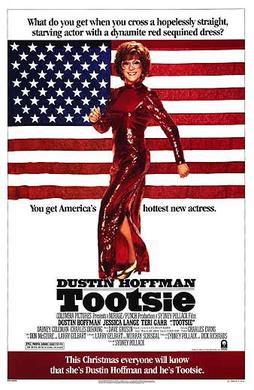
Tootsie is a 1982 American satirical romantic comedy film directed by Sydney Pollack from a screenplay by Larry Gelbart and Murray Schisgal and a story by Gelbart and Don McGuire. It stars Dustin Hoffman, Jessica Lange, Teri Garr, Dabney Coleman, and Charles Durning. In the film, Michael Dorsey (Hoffman), a talented actor with a reputation for being professionally difficult, runs into romantic trouble after adopting a female persona to land a job.
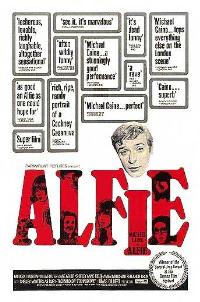
Alfie is a 1966 British comedy-drama film directed by Lewis Gilbert and starring Michael Caine. The Paramount Pictures release was adapted from the 1963 play of the same name by Bill Naughton. Following its premiere at the Plaza Theatre in the West End of London on 24 March 1966, the film became a box office success, enjoying critical acclaim, and influencing British cinema.
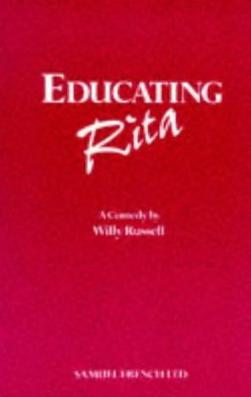
Educating Rita is a stage comedy by British playwright Willy Russell. It is a play for two actors set entirely in the office of an Open University tutor.

Sleuth is a 1972 mystery thriller film directed by Joseph L. Mankiewicz and starring Laurence Olivier and Michael Caine. The screenplay by playwright Anthony Shaffer was based on his 1970 Tony Award-winning play. Both Olivier and Caine were nominated for Academy Awards for their performances. This was Mankiewicz's final film. Critics gave the film overwhelmingly positive reviews.

Dame Julia Mary Walters, known professionally as Julie Walters, is an English actress. She is the recipient of four British Academy Television Awards, two British Academy Film Awards, two International Emmy Awards, a Golden Globe Award, and an Olivier Award.

Get Carter is a 1971 British gangster film, written and directed by Mike Hodges in his directorial debut and starring Michael Caine, Ian Hendry, John Osborne, Britt Ekland and Bryan Mosley. Based on Ted Lewis's 1970 novel Jack's Return Home, the film follows the eponymous Jack Carter (Caine), a London gangster who returns to his hometown in North East England to learn about his brother's supposedly accidental death. Suspecting foul play, and with vengeance on his mind, he investigates and interrogates, regaining a feel for the city and its hardened-criminal element.

William Russell is an English dramatist, lyricist and composer. His best known works are Educating Rita, Shirley Valentine, Blood Brothers and Our Day Out.

Dirty Rotten Scoundrels is a 1988 American comedy film directed by Frank Oz. It is a remake of the 1964 film Bedtime Story, whose co-writers Stanley Shapiro and Paul Henning received screen credit for Dirty Rotten Scoundrels, along with writer Dale Launer. Set on the French Riviera, the film stars Steve Martin and Michael Caine as two con men competing to swindle an heiress out of $50,000.
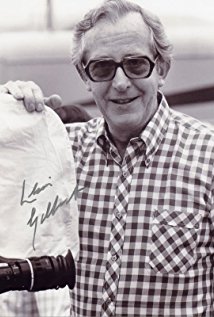
Lewis Gilbert was an English film director, producer and screenwriter who directed more than 40 films during six decades; among them such varied titles as Reach for the Sky (1956), Sink the Bismarck! (1960), Alfie (1966), Educating Rita (1983) and Shirley Valentine (1989), as well as three James Bond films: You Only Live Twice (1967), The Spy Who Loved Me (1977) and Moonraker (1979).

Alfie is a 2004 romantic comedy-drama film inspired by the 1966 British film of the same name and its 1975 sequel, starring Jude Law as the title character, originally played by Michael Caine in the 1966 film and Alan Price in the 1975 sequel. The film was co-written, directed, and produced by Charles Shyer.
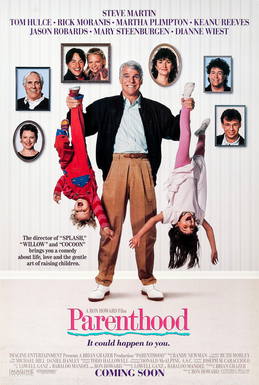
Parenthood is a 1989 American family comedy-drama film with an ensemble cast that includes Steve Martin, Tom Hulce, Rick Moranis, Martha Plimpton, Keanu Reeves, Jason Robards, Mary Steenburgen, and Dianne Wiest.

Maniac is a 1980 American psychological slasher film directed by William Lustig and written by C. A. Rosenberg. It stars Joe Spinell as Frank Zito, an Italian-American serial killer residing in New York City who murders and scalps young women. Spinell was also co-writer of the film.

Valley Girl is a 1983 American teen romantic comedy film directed by Martha Coolidge and written and produced by Wayne Crawford and Andrew Lane. Loosely based on the tragedy Romeo and Juliet by William Shakespeare, the film centers on the romance between a valley girl and a city punk. Michelle Meyrink, Elizabeth Daily, Cameron Dye and Michael Bowen appear in supporting roles.
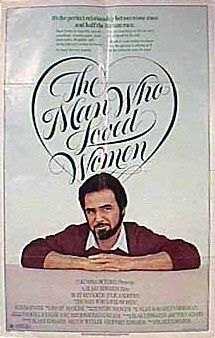
The Man Who Loved Women is a 1983 American comedy film directed by Blake Edwards and starring Burt Reynolds, Julie Andrews and Kim Basinger. It is a remake of the 1977 François Truffaut's film L'Homme qui aimait les femmes.
Jeananne Crowley is an Irish actress and writer who has worked in Irish theatre and in British film and television. She appeared in the film Educating Rita and is possibly best known for her role as Nellie Keene in the BBC drama series Tenko.

The Jigsaw Man is a 1983 British espionage film starring Michael Caine, Susan George, Laurence Olivier and Robert Powell. It was directed by Terence Young. The screenplay was written by Jo Eisinger, based on the novel The Jigsaw Man by Dorothea Bennett.

Sleuth is a 2007 thriller film directed by Kenneth Branagh and starring Jude Law and Michael Caine. The screenplay by Harold Pinter is an adaptation of Anthony Shaffer's play, Sleuth. Caine had previously starred in a 1972 version, where he played Law's role against Laurence Olivier.
The 37th British Academy Film Awards, more commonly known as the BAFTAs, took place on 25 March 1984 at the Grosvenor House Hotel in London, honouring the best national and foreign films of 1983. Presented by the British Academy of Film and Television Arts, accolades were handed out for the best feature-length film and documentaries of any nationality that were screened at British cinemas in 1983.

How to Murder a Rich Uncle is a 1957 British black comedy film directed by Nigel Patrick and starring Patrick, Wendy Hiller, Charles Coburn and Anthony Newley. It was based on the play Il faut tuer Julie by Didier Daix.


















